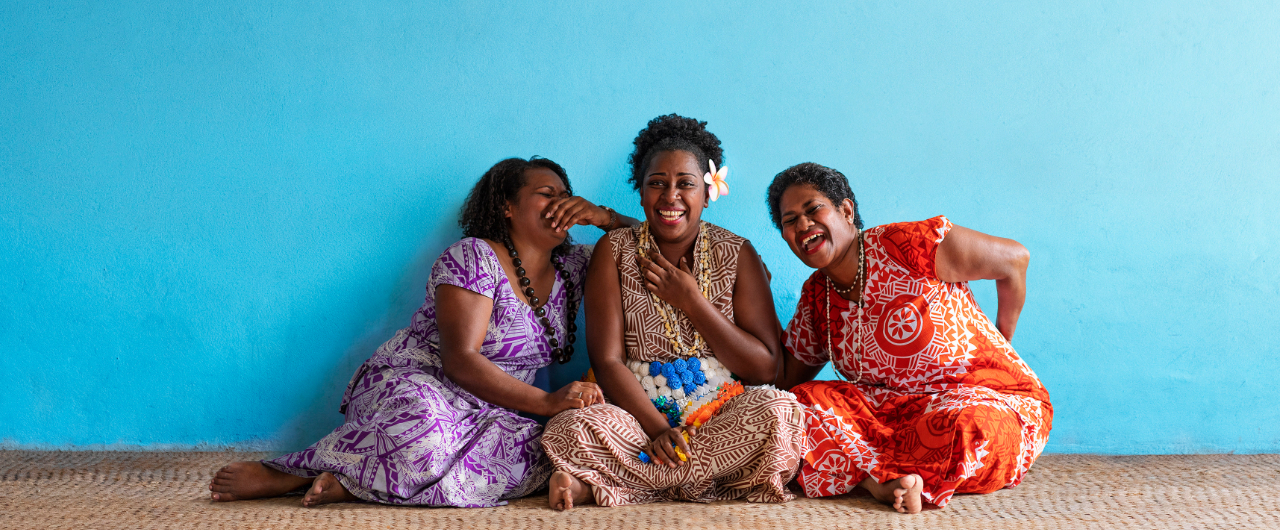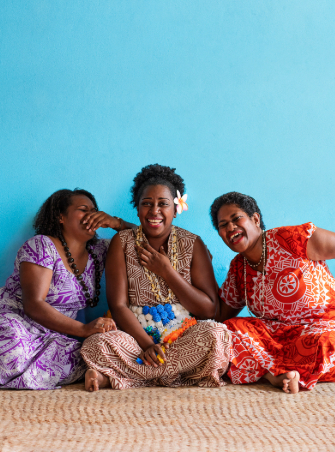Sign up for Fiji news, deals & offers
Happiness in your inbox
Sign up

Planning a holiday in Fiji? Get ready for sun, sea, and some of the friendliest people around. While English is widely spoken in Fiji, knowing a few Fijian phrases is a fun way to connect with locals. Here’s some handy Fijian words and phrases to help you fit right in.
Fiji has over 300 regional dialects, with the Bauan dialect being the most widely spoken. Here's a quick guide on how to pronounce Fijian words like a local.
| Fijian Alphabet | Pronounciation |
| A | is pronounced as ‘ah’ as in ‘car’ |
| E | is pronounced as ‘eh’ as in ‘head’ |
| I | is pronounced as ‘ee’ as in ‘see’ |
| O | is pronounced as ‘oh’ as in ‘or’ |
| U | is pronounced as ‘oo’ as in ‘moon’ |
| B | has a subtle ‘m’ sound before the ‘b’ sound, ‘mb’ like in ‘bamboo’ |
| C | Is pronounced ‘th’ as in ‘thanks’ |
| D | has a slight ‘n’ sound before the ‘d’ sound, similar to ‘sand’ |
| G | is pronounced as ‘ng’ as in ‘rang’ |
| Q | A noticeable ‘g’ sound, as in ‘angry’ |
| Category | Word/ Phrase | Word & Pronunuciation | Meaning |
| Greetings | Hello |
Bula |
Meaning ‘hello’, Bula is a wish for ‘life’ and ‘good health’ and can be used at any time of the day. |
| Good morning | Yadra (Yahn-drah) |
Say this instead of Bula if you meet someone in the morning. | |
| Goodbye | Moce (moh-theh) |
Use to farewell someone in Fijian. It can also mean ‘to sleep’. | |
| See you again! | Sota tale (So-tah Tah-leh) |
A common farewell expression if you’re plannning to meet the person again. | |
| Basic Etiquette | Please | Kerekere (Keh-reh-keh-reh) |
Use to politely request someone’s help or to use something. |
| Thank you |
Vinaka |
Meaning "thank you." A simple must-know for showing appreciation. | |
| Excuse me |
Tulou |
Respectfully bow your head, stoop slightly and say this when passing someone in a house or crowded space. | |
| Common Phrases | Yes | Io (‘ee-oh’) |
Meaning yes – a simple but useful word |
| No | Sega (Seng-ah) |
Meaning ‘no’- a simple but useful word | |
| Introductions | My name is… | Na yacaqu o (Nah yah-tha-goo- or) |
Add your name to the end of this phrase. Eg. If your name is John, say "Na yacaqu o John." |
| I’m from… | O au mai… (O-yau-my) |
Add the name of your country to the end of this phrase. Eg. If you’re from Australia, say “O au mai Australia” |
|
| Common Questions and Statements | Where is..? | I vei na…? (E-vey-nah) |
A handy phrase to use when you want to know where something or someone is. |
| What’s this? |
A cava qo? |
Say this phrase and point to something close to you that you want to know the name of. | |
| How much..? |
E vica |
||
| I want to go… |
Au via lako… |
Add the name of a place at the end of this phrase. Town:Tauni Store: Sitoa |
|
| Exclamations | Excellent! |
Wananavu! |
Say this to express that you are pleased with something. |
| Beautiful |
Totoka! |
Say this to describe something that you think is pretty or beautiful (eg, view, dress, girl etc). | |
| No worries | Sega na leqa! (Seh-gha na le-ga) |
Meaning all is well or no worries. Just enjoy the moment. |